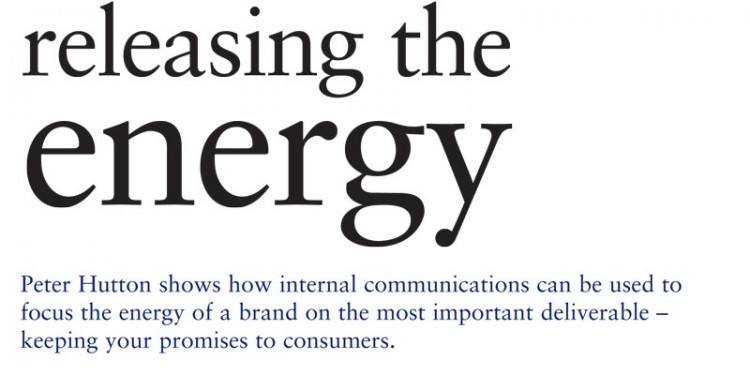Peter Hutton shows how internal communications can be used to focus the energy of a brand on the most important deliverable – keeping your promises to consumers.
Shortly after I set up my business, I received a letter from my bank, HSBC, telling me that a cheque had bounced and it was charging me a £28 penalty. A payment I thought had gone into the account had not, and by the time I had received the letter another two cheques had bounced with further £28 penalties attached to each one.
I phoned to complain, and asked why it could not have texted me or phoned me as soon as I had gone overdrawn – as my personal bank, First Direct (part of HSBC) does. The person at the other end of the line explained that HSBC didn’t have the same system as First Direct, that these were the rules, and that it was my fault – I should have checked my bank balance on-line. It made no difference that I was a new small business customer, and had had difficulty getting the on-line system to work properly, partly due to software problems at the bank. Although she “let me off” one of the three fines, I still felt aggrieved. “If you have the discretion to let me off one, then why not two or even all three?”, I queried. She was not in the mood for negotiation.
How did that make me feel? Used.
I later mentioned the experience to my branch contact. To my amazement he waived the fee there and then and explained that that was not the way he wanted to make money from his small business customers. How did that make me feel? Valued. (Thanks, Steve Hall – Commercial Banking Officer, HSBC Sutton.) I had chosen HSBC because I am a First Direct customer. As far as I am concerned, they are the same bank. It certainly makes it easier transferring money between personal accounts and business accounts, as you do in a start-up. Same bank, but three different messages of what it stands for.
To read the full article, please download the PDF above.

